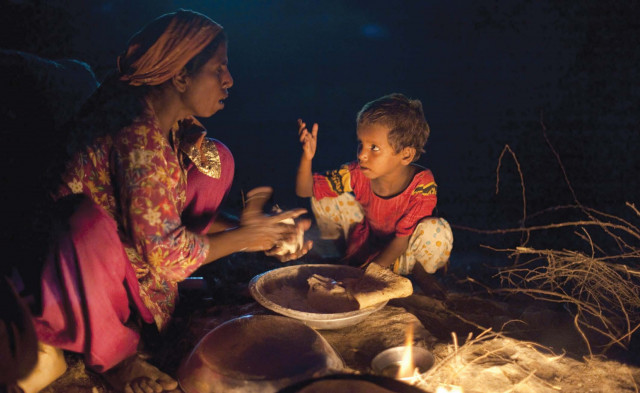Plight of a village hit by flood
Pakistani villagers in rags rush towards army boats hoping they will be taken to safety.

After landing by boat, General Shawkat Iqbal, impeccably turned out in his tan-coloured uniform glistening with medals, takes a megaphone to address the crowd in front of the mosque.
Behind him, the fertile plain of Jamshoro is engulfed by muddy brown waters.
“We’ve brought boats to take you away. Will you come with us?” asks Iqbal, the commander of military forces in the area.
“No,” replies the crowd in chorus as they stand in line in front of him, waiting for the stocks of food rations being dished out by his troops.
It’s been three weeks since the Indus, just 10 kilometres (six miles) away, let loose by torrential rains, broke from its river bed and swept away entire villages and left Bilawalpur surrounded by five feet of water.
The village would have been wiped off the map, like thousands of other enclaves of mud and stones if the waters had risen just one or two metres higher.
The authorities have sent soldiers, police, community leaders and clan leaders to encourage the population to flee.
“Some –1,000 out of 2,500 – have left, but most people have stayed. They didn’t want to listen at all,” says Sayed Atahullah Shah, a district official.
Those who remain looked worn from their struggle to survive; some 150 men begging for supplies, rake thin and dirty, beaten by the 45 degree humid heat. They have fought on; hungry, waiting for night to come when they could break their Ramadan fast with a bare minimum of food.
Despite that, nothing would make them leave in the army’s chartered canoes. For these poor farmers earning their living from Sindh’s fertile plains, the prospect of exile to a nearby refugee camp is frightening. “In the camps, there is no food or aid. The authorities have no respect for human dignity,” says Muhammad Juman, 41.
The idea of joining the flood of displaced families heading further south to Karachi is even worse.
“The cities are dirty, life is too expensive. We cannot live there decently,” says Haji Gulam.
The army forced no one to leave. The water level around the village has dropped slightly and if the weather stays dry, the village will be saved.
That does not mean the residents of Bilawalpur will have been spared. The waves have washed away the cotton they were preparing to harvest along with their fertilizer and seeds.
The water will take at least a month to recede completely and it may be too late to plant winter wheat, which will compound the humanitarian crisis facing huge swathes of the country.
Published in The Express Tribune, August 27th, 2010.



1725254039-0/Untitled-design-(24)1725254039-0-208x130.webp)















COMMENTS
Comments are moderated and generally will be posted if they are on-topic and not abusive.
For more information, please see our Comments FAQ